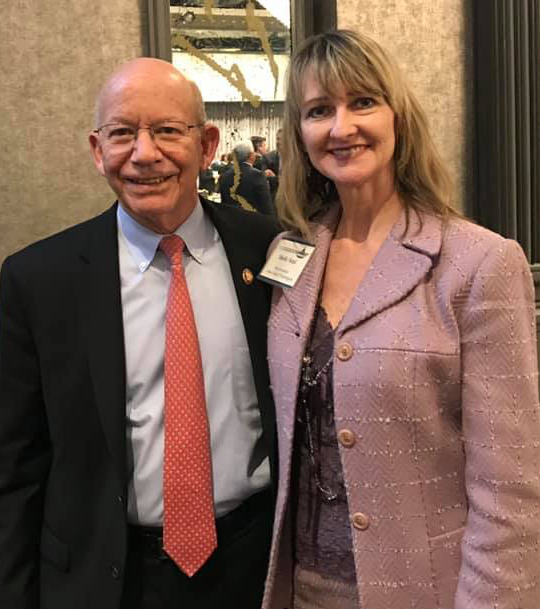
Rep. Peter DeFazio (D-OR), Chairman of the House Transportation & Infrastructure Committee, and Rep. Rick Larsen (D-WA), Aviation Subcommittee Chairman introduced H.R. 1108, the Aviation Funding Stability Act of 2019. The act serves to protect FAA programs and personnel, and the U.S. aviation industry as a whole, from future Federal Government shutdowns. In the aftermath of the last shutdown, which negatively impacted all aspects of U.S. aviation – including airlines, airports, manufacturers, flight crews, passengers, and the pipeline of new critical aviation safety employees – the bill has become a necessary focal point.
The National Association of State Aviation Officials (NASAO) endorses the Aviation Funding Stability Act. “This is a common-sense piece of legislation that ensures that all of the critical components of our national airspace system remain fully operational, without interruptions, in a safe and secure manner, regardless of the political environment,” said Shelly Simi, NASAO President and CEO. “As demonstrated by the recent shutdown, aviation has a broad reaching effect in serving the needs of our citizens and communities across the nation and directly impacts the economy.”
The importance of the Aviation Funding Stability Act:
The United States is home to the world’s largest, busiest, and most complex airspace system. Civil aviation alone has a $1.5 trillion impact on the economy, creating more than 11 million jobs, according to industry groups.
The effects of the recent shutdown will be felt for years to come, and may even have led to gaps in aviation safety that put U.S. travelers at risk. Chairman DeFazio stated that “thousands of FAA safety personnel responsible for providing critical oversight of the U.S. aviation industry were furloughed. Our 14,000 air traffic controllers, and thousands of aviation safety and security professionals worked without pay. The effects of this most recent shutdown will be felt for years to come. This must not happen again. Our legislation ensures that in any future government shutdowns, all FAA programs will function uninterrupted and that all FAA employees can remain at work and paid.”
What the legislation proposes:
· Authorizes the FAA to continue to draw from its Airport and Airway Trust Fund (AATF) during a lapse, with no General Fund contributions. The AATF generates enough revenue from the domestic passenger ticket tax, commercial fuel tax, general aviation gasoline tax, and cargo tax, among other sources, to sustain all of the agency’s programs without a General Fund contribution needed during a lapse. Because users of the National Airspace System pay for the system, they deserve for it to function without interruption.
· Allows the entire agency to operate at current funding levels, with no Congressional action required. This ensures that all FAA programs function uninterrupted and that all FAA employees are paid for their important work.
“U.S. aviation is the gold standard of flight because of our skilled workforce, including the dedicated air traffic controllers and essential safety personnel who work at the FAA. Their work keeps the aviation system running efficiently and ensures passengers can safely reach their final destinations without incident” stated Rep. Larsen, driving home the necessity of the bill.
The Subcommittee on Aviation will hold a hearing “Putting U.S. Aviation at Risk: The Impact of the Shutdown” this coming Wednesday, February 13 at 10AM in HVC 210, Capitol Visitor Center.



